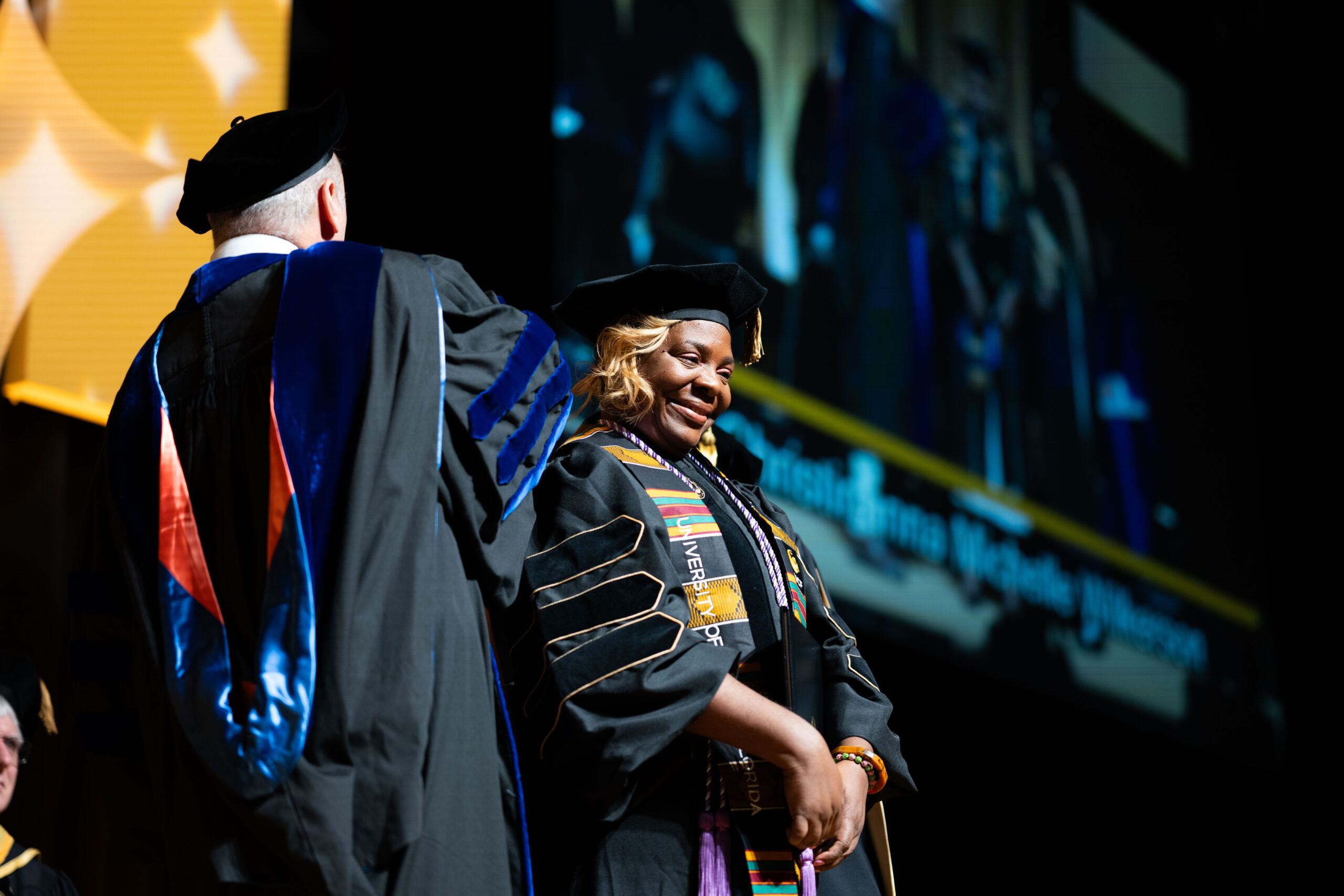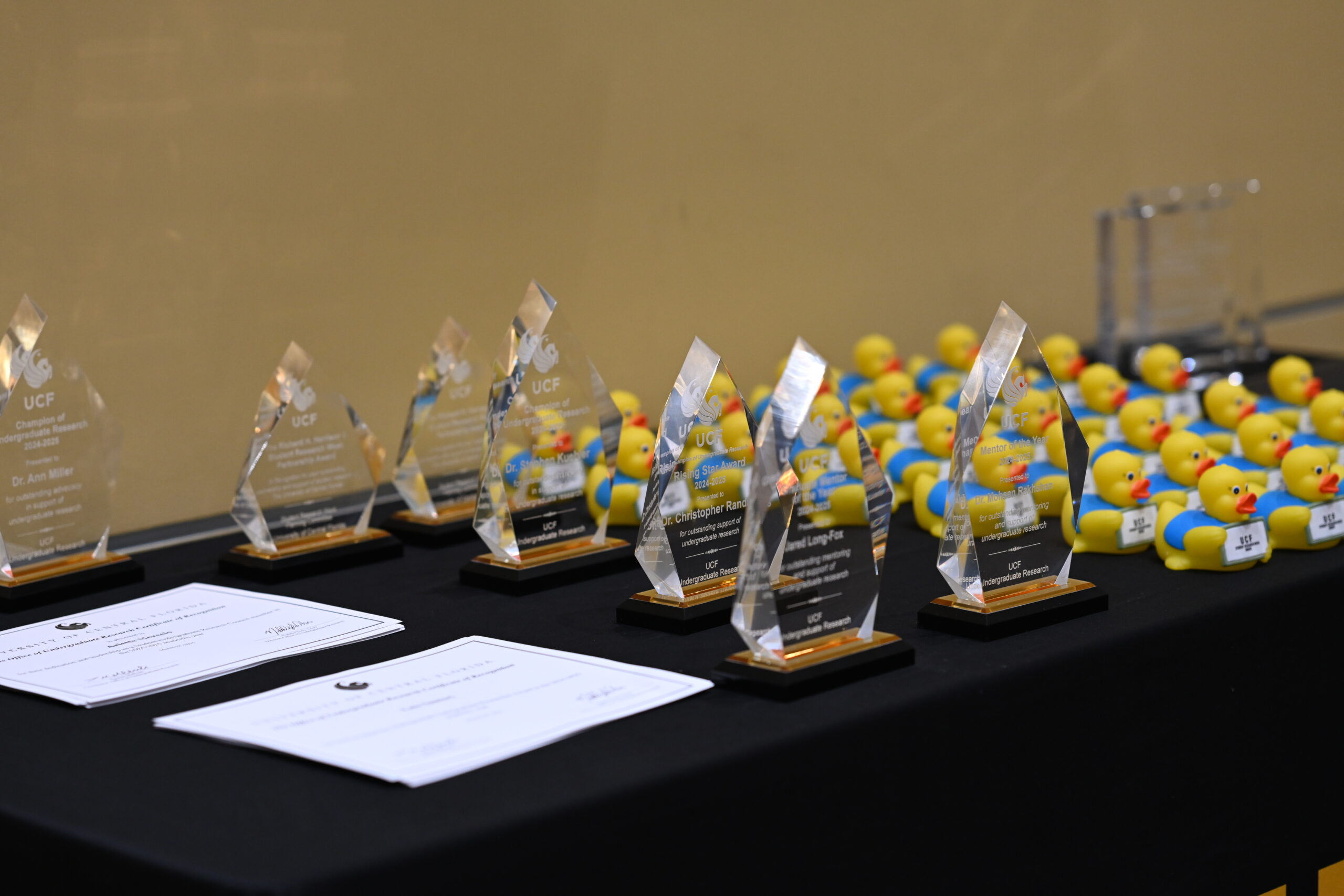17 Academics from Across the Nation Warn that COVID-19 Pandemic Worsens Equity Gap between Men, Women in Academia
When COVID-19 shut down the nation in March and April, many university faculty members were instructed to stay home and teach remotely. At the same time, K-12 schools and daycare facilities shuttered to help keep the virus from spreading.
That left many faculty members in a dilemma – teaching their classes, continuing remote research, caring for young children, helping ease their school-age children into remote learning, and in some cases also taking care of elderly parents. By and large, women faculty were left juggling it all, thanks to antiquated gender roles, according to a new data-driven opinion piece authored by 17 faculty members from across the nation. UCF biologist Kristy Lewis is one of the authors. The article was recently published in the Proceedings of the National Academy of Sciences.
The paper also suggests underrepresented groups are also going to feel the impact for years to come.
“COVID-19’s effects are driving more of a wedge between women and men in academia in terms of research opportunities,” Lewis says. “It’s already impacted productivity and while COVID-19 will eventually end, the impact will continue for years to come. If universities aren’t careful, this equity gap will turn into a chasm, amplifying the known barriers to women’s career advancement and achievements.”
For example, journals are already reporting an increase in manuscript submissions by men and a drop in submissions by women. The authors of the article say a case could be made that the majority of women are spending more time juggling all the “other duties at home” disproportionately compared to men.
“Academia will need to enact solutions to retain and promote women faculty who already face disparities regarding merit, tenure, and promotion,” the paper states.
The paper cites data that illustrate historical disparities such as bias women face in peer review and grant review panels, and that women are assigned more advisees and tend to have more service and/or greater teaching loads. The paper also cites new concerns that have arisen because of universities’ responses to COVID-19, such as students needing more one-on-one help to the impact on faculty’s’ mental health and cost-cutting measures enacted by universities threatened by drops in enrollment.
The paper focused on women in academia the researchers say, because there was more data about them. However, the authors warn, all underrepresented groups are at risk.
The authors say some proactive measures, dialogue, and action will help. One suggestion is to create a video that helps university administrators recognize implicit biases — similar to what panelists for the National Science Foundation watch before reviewing grant-proposal submissions.
Tenure and promotion committees evaluating research output during the pandemic should ask nuanced, detailed questions that consider an individual’s background.
For example, Black, indigenous, and other people of color are among those groups hardest hit by the COVID-19 illness and they may be experiencing disruptions unequal to their colleagues.
“This has been a disruptive time for everyone,” Lewis says. “We see this as an opportunity and a springboard to broaden the conversation on equity. All underrepresented groups will benefit from proactive and thoughtful measures.”
Lewis joined UCF in 2018. She has multiple degrees including a doctorate from Louisiana State University. She is an assistant professor of biology and a member of UCF’s National Center for Integrated Coastal Research. Her lab, Lewis Lab of Applied Coastal Ecology, focuses on ecological modeling, which means she uses math and to understand complex ecological processes and predict how ecosystems may change over time. Her research is funded by organizations such as the National Academy of Sciences, and National Oceanic and Atmospheric Administration.
Latest News

UCF Rosen College Ranks No. 1 in the World for Hospitality Education for 2025
One of the most anticipated theme parks in the world is about to open its gates — and right next door, the No. 1 hospitality and hotel management school on...

UCF Women’s Club Enhances Graduate Excellence through Scholarships
Financial support plays a crucial role in the academic success of many students, with scholarships serving as a key resource that enables many to access higher education. Scholarships provide vital...

UCF Honors Outstanding Graduate Students for 2025
Each year, the University of Central Florida recognizes exceptional graduate students who have demonstrated excellence in academics, leadership, research, creative scholarship, and service. These outstanding individuals are honored through UCF’s...

Founders’ Day 2025: Celebrating Student, Faculty and Staff Knights
Every year on the first Wednesday of April, UCF honors the outstanding accomplishments and contributions of our people on Founders’ Day, our annual celebration of the employees, faculty, and students...
